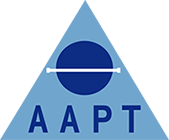News
AAPT statement - The Guardian article 29th April
AAPT today release an official statement in relation to an article published 29th April
The article entitled ‘Concerns over training at emergency morgues run by UK festival firm’ that appeared in the The Guardian (29th April) highlights a deeply troubling wider trend that AAPT wishes to address.
Care of the deceased, in whatever context, is an extremely important duty that our members are proud to carry-out, but it is also a duty that requires technical knowledge about maintaining the integrity of the deceased and ensuring the prevention and control of infection, as well as experience of what it takes to make sure that the principles of dignity and respect are maintained.
It is no accident that the mantra of the Anatomical Pathology Technologist (APT) is ‘treat your patients as though they were a member of your own family’.
This pandemic has necessitated a level of planning never before seen in the area of after-death process management. The number of deaths that were forecasted when Covid-19 first came to prominence meant that capability well in excess of the norm was required and responsible public sector organisations duly rose to the challenge and began to build capacity at scale and pace.
This requires imaginative use of scare resources and for new ways of working to be established, but during these difficult times – especially during these difficult times – the principles of dignity and respect cannot be allowed to fade into the background or be overshadowed by practical considerations.
Over the past two months, we have received reports of poor practices being introduced and certain quality standards being overlooked in the name of increasing capacity. Practices and processes outside of those normally used by services involved in the care of the deceased are undoubtedly and justifiably required, and can be introduced whilst maintaining standards; whether it’s a mortuary supplementing their workforce with unqualified staff, a local authority purchasing and hosting additional refrigerated storage for the deceased, or unusual vehicles being pressed into service for their transport. Key to this being appropriately managed however, are two fundamental principles:
- The involvement, from the very first stages of planning, of specialists highly skilled in the safe and dignified care of the deceased, such as APTs, pathologists and funeral professionals – not the unqualified managers of such professionals, the professionals themselves
- Quality and sufficiently in-depth training, designed and delivered with the assistance of specialists such as those listed above, supplemented by robust competency checks
We have no way of verifying how accurate reports such as the one in the Guardian are, and the public body involved have duly responded, but we would strongly encourage organisations commissioning services, and those being commissioned, to honestly reflect on the gaps in their knowledge and expertise, and to seek to fill those gaps with the assistance of those who do this day-in, day-out.
The public deserve not to have their already considerable distress added to in the name of utility.
